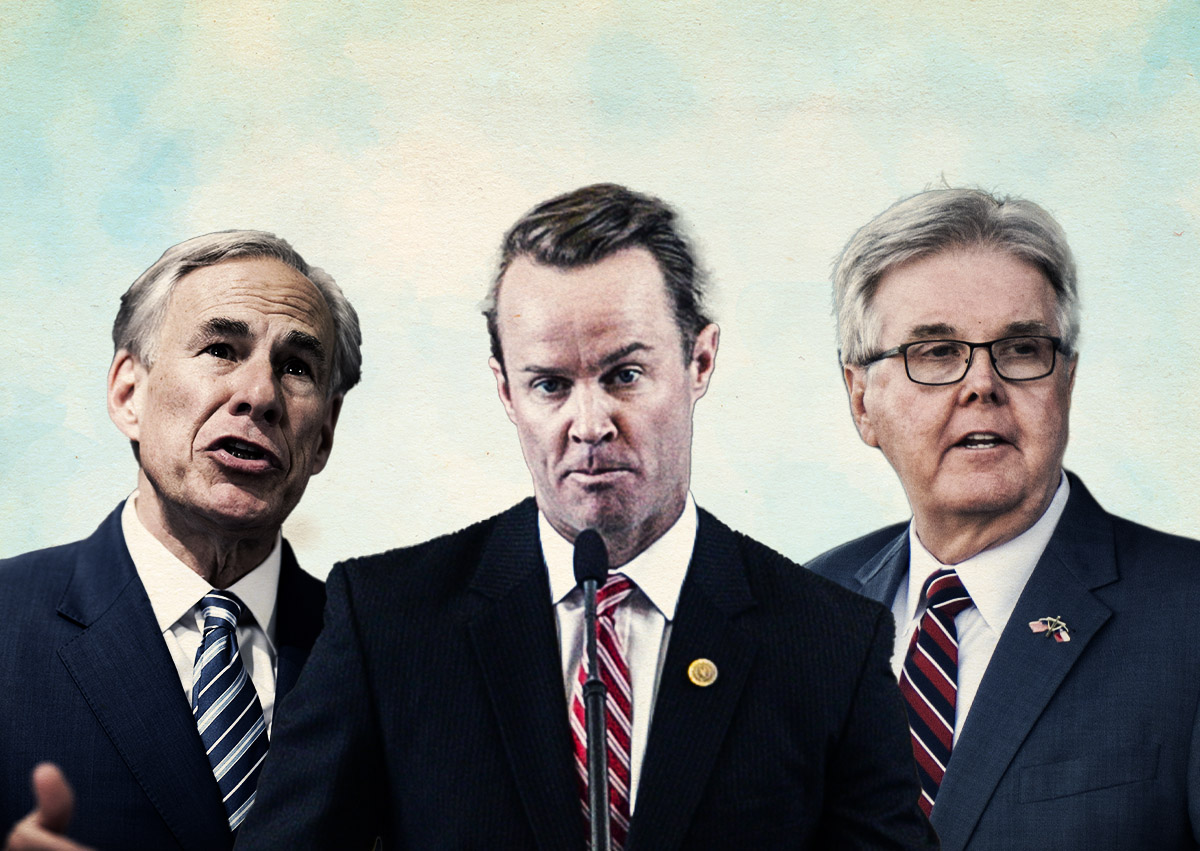Texas Legislature Begins Second Property-Tax Special Session
At the start of a second special session of the Texas legislature , Sen. Phil King asked God to help solve the state’s property tax reform mess. If dueling meetings of the Texas House of Representatives and Senate Wednesday are any indication of how the session will go, divine intervention may be necessary.
“Well, Father, we’re back again, and we have mixed emotions about it,” King said as he led the invocation to start the session. This is the legislature’s second special session in as many months, both called because it has so far failed to agree on how to spend the $17.6 billion it budgeted for property tax relief.
The House and Senate met on opposite ends of the Capitol on Wednesday morning, a fitting metaphor for their contentious, go-it-alone approaches each has taken to the debate thus far.
Both meetings began with a message from Gov. Greg Abbott, who called on both chambers to put legislation on his desk that cuts property taxes, “solely by reducing the school district compressed tax rate.” It almost exactly mirrored the instructions he gave the chambers at the start of the last special session, when the governor publicly weighed in on the debate for the first time.
The House quickly introduced its version of the proposal, which aligned closely with Abbott’s wishes, cutting a form of school district property taxes by about 16 cents for every $100 of taxable value. The plan would essentially shrink school districts’ property tax rates over time until they reach zero and send the billions of dollars set aside for tax relief directly to schools to make up for that lost revenue.
Texas Speaker of the House Dade Phelan then gaveled the chamber out, not to reconvene until 10 a.m. Friday.
The Senate meeting was far livelier. Its plan, which was passed unanimously, would dedicate 71 percent of the money to rate compression, while spending the remaining 29 percent to increase the homestead exemption from $40,000 to $100,000. In doing so, the average homeowner would save $1,300 a year on property tax bills, while disabled homeowners and those over 65 would save $1,450, according to state Sen. Paul Bettencourt, the bill’s author.
“It’s eye-popping. It’s unprecedented. It’s an incredible benefit to homeowners and really to the entire tax system,” Bettencourt said of the plan, calling it a “win-win-win.” His plan would also remove the franchise tax for any businesses earning less than $2.47 million in revenue.
More than anything, Wednesday’s meetings showed that the House and Senate have not moved much at all since the start of the last special session, which began immediately after the regular term ended in May. That session also began with Abbott asking the chambers to pass a bill that aimed to cut property taxes directly by slashing school district rates.
On the first day of that session, the House passed a bill in line with the Governor’s wishes. It also cut school district property taxes and did away with appraisal caps, a previous sticking point in negotiations. After passing that version of the bill, Phelan adjourned the House for the rest of the session, sending the bill to the Senate.
It was a power move, essentially telling Senate leader and Lt. Gov. Dan Patrick to take it or leave it. With the House adjourned, the Senate wouldn’t be able to make any changes to the bill. But Patrick held firm on his demand that the bill increase the homestead exemption, which exempts part of a home’s value from taxation.
While the first special session did little to solve the legislative impasse, it drew clear battle lines: Abbott and Phelan versus Patrick. After Wednesday’s meetings, those lines remained.
In the last week, San Antonio voted to increase its homestead exemption to 20 percent of a home’s value, giving a boost to the Senate plan.
After an hour-and-a-half discussion led by Sen. Roland Gutierrez about an amendment to give teachers a supplemental payment, the amendment was adopted. Unrelated to property tax cuts, it would pay $2,000 to urban teachers and $6,000 to rural teachers for the next two years.
After unanimously passing their plan, the senators hugged, shook hands, and cheered. Only God knew where the House was, though His plans for intervention remain unclear.



